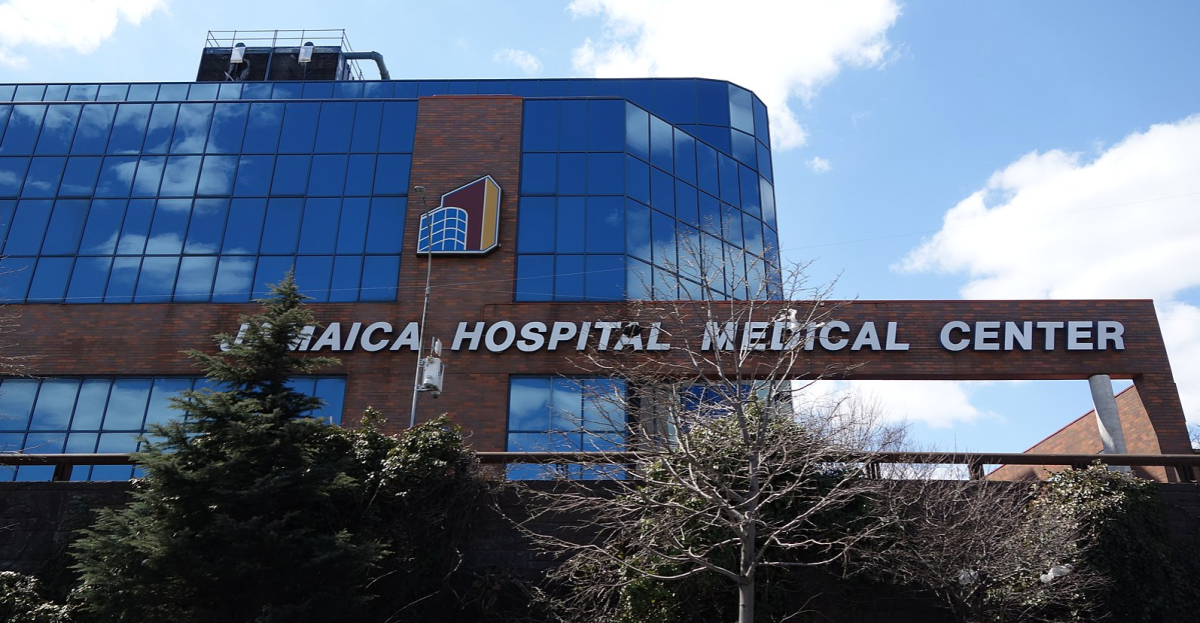Almost 300 resident physicians employed by the MediSys Health Network at Jamaica and Flushing Hospital could go on strike later this month if management refuses to agree to their urgent demands which include a living wage, adequate benefits, and patient care.
The physicians are represented by the Committee of Interns and Residents (CIR), the largest housestaff union in the United States representing more than 24,000 interns, residents and fellows. About 93% of voting resident physicians at Jamaica and Flushing Hospitals recently agreed to authorize their bargaining committee to call for a strike.
Dr. Uchenna Chinakwe, a first-year resident at Jamaica Hospital, told QNS his colleagues are planning to go on a three-day strike from May 15-18 if the union cannot reach a new collective bargaining agreement with MediSys.
“Management has been negotiating with us. They have a bargaining committee on their side as we have ours,” Chinakwe said. “Things just started to pick up not too long ago, but we still feel there’s a lot of room to grow. The good news is we will continue to have a lot of conversations. We’re not just going on strike and shutting up shop and forgetting about everything. The negotiations will be ongoing right up until the date of the proposed strike if we’re able to break the deadlock, then the strike will be called off.”
Xavia Malcolm, assistant director of Public Affairs at the MediSys Health Network, told QNS that “negotiations are ongoing.”
This will be the first time NYC physicians could go on strike since 1990 over labor practices, pay, and patient care demands. The impending strike comes after NYC nurses led a three-day strike and won a fair contract earlier this year. Chinakwe said there have been several bargaining sessions since September 2022.
Every three years, residents in most programs tend to have their contracts renegotiated, according to Chinakwe. Unfortunately, Chinakwe said his colleagues have arrived at an impasse, as a lot has changed within the last three years since the pandemic.
Regularly working 80-hour weeks and scrambling to fill in gaps in staffing — all while earning between the $15 minimum and $17 per hour wage — the doctors, many of whom are immigrants, say they are struggling to stay afloat amid skyrocketing living costs in New York.
“A lot of my colleagues have families, children, and some have partners that they’re supporting. It’s very difficult and demanding work for a resident while we are worried about our financial wellbeing and making ends meet,” Chinakwe said.
According to Chinakwe, residents at Jamaica and Flushing Hospitals are the lowest paid in the city.
“Across the city right now, a lot of other programs are renegotiating their contracts and are increasing their pay. We’re not asking for more, we’re asking for what everyone else is getting,” Chinakwe said.
Another issue, according to Chinakwe, is the fact that residents are spending a lot of time doing duties that can easily be carried out by ancillary staff.
“It takes us away from the bedside where we’re learning and providing quality care to our patients,” Chinakwe said.
Chinakwe said many of his colleagues have also complained about certain aspects of different programs at MediSys that they believe can be fine-tuned, such as when it comes to a volume of patients seen or the amount of supervision residents are getting.
“Management is of the opinion that they’re doing their best. We believe that it can be improved upon…it’s about finding a way to ensure that we’re getting the training and the quality of training to provide the best care to our patients in a safe way,” Chinakwe said.
New York City bore the brunt of the COVID-19 pandemic and the healthcare system was strained of its resources and staff members; Chinakwe said he still has “harrowing conversations” with nurses describing Post Traumatic Stress Disorder (PTSD) brought on by their experiences during that time.
“Nurses still had to go on strike in parts of the city to get improved conditions. There’s support but that support doesn’t seem to translate into significant change,” Chinakwe said. “It’s not enough to clap and give praise in the papers. There has to be change on the ground to improve conditions of the people who are caring for these communities — they’re making huge sacrifices.”
Chinakwe noted that healthcare workers deserve a living wage and to be paid enough so that they can do their jobs properly and not worry about putting food on the table, affording to take care of their kids or other dependents.
“We believe management shares this, and are hoping they will meet us where we are with these demands. Regarding the other demands, we want to assure everyone it’s a difficult decision that we are taking — we’re not taking it lightly, but we believe that it is necessary to maintain and improve the quality of care delivering and continuing the work we are doing for the community,” Chinakwe said.
Dr. Neha Ravi, a first-year family medicine resident at Jamaica Hospital, said her colleagues do not want to strike, but will be forced to take that step if MediSys refuses to “do the right thing and bargain in good faith,” adding that the only thing more urgent than their economic needs are their demands around patient care.
“Resident physicians desperately need more time with our patients – that’s why it’s so important that MediSys seriously bargain with the union on proposals that would limit patient loads and help ensure that we spend less time on tasks that take us away from our core work, caring for our patients,” Ravi said.
City Councilwoman Lynn Schulman, who is chair of the Council’s Health Committee, has voiced her support for the physicians.
“Decades of hospital closures has left Queens with the worst hospital capacity in the city and now CIR doctors are facing heavy patient loads and are sacrificing their education and well-being to care for our communities,” Schulman said. “I am proud to stand with the dedicated doctors of CIR as they call on MediSys to bargain in good faith and agree to a fair contract that includes a living wage and limits to their heavy work loads and time spent away from patient care. This inequity in the treatment of CIR doctors is detrimental to the lives of our Borough’s patients.”


































